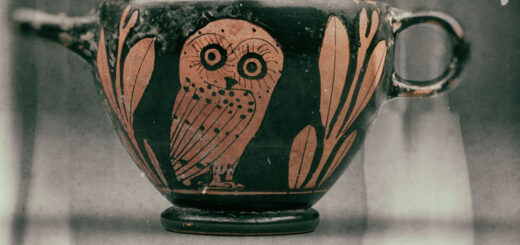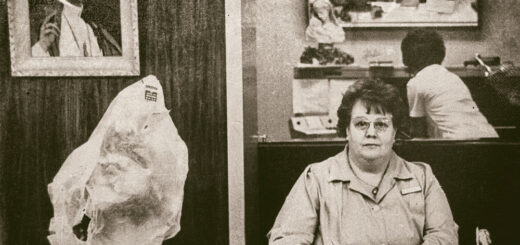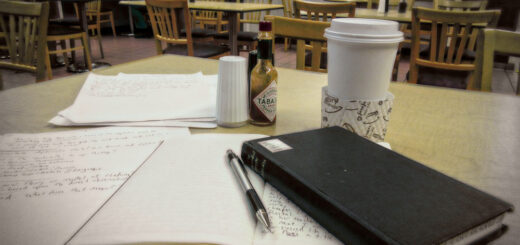Irish Studies
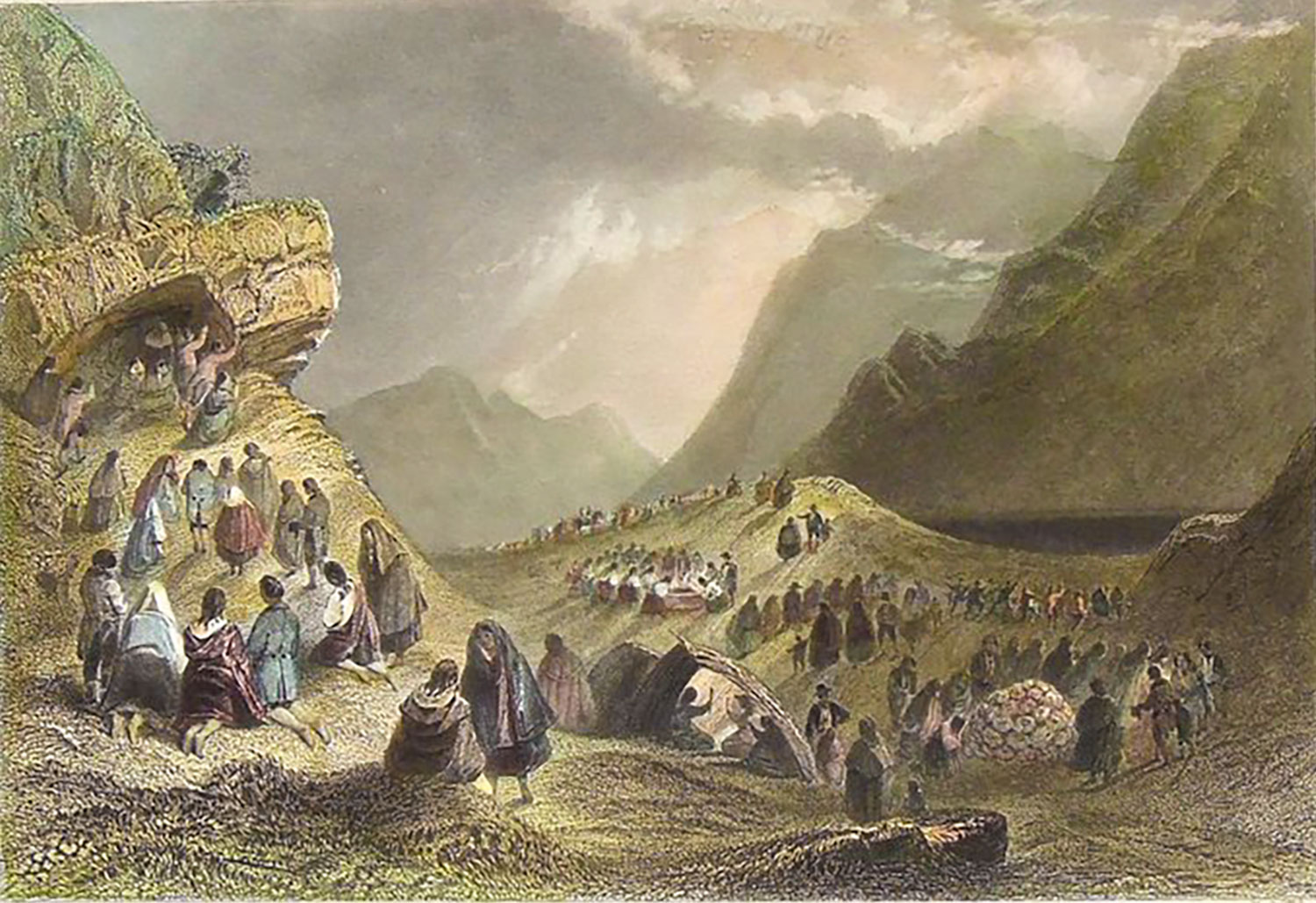 Learning a new language requires one to enter an unfamiliar, sometimes unsettling world. In 1985, I spent the summer in a small Irish village faraway on the western end of Galway Bay. My idea was to acquire proficiency in the Irish language—“Gaelic,” as the Yanks say—by immersing myself in it. I arranged to stay in a farmhouse with a gracious family of native speakers. They treated me as a son.
Learning a new language requires one to enter an unfamiliar, sometimes unsettling world. In 1985, I spent the summer in a small Irish village faraway on the western end of Galway Bay. My idea was to acquire proficiency in the Irish language—“Gaelic,” as the Yanks say—by immersing myself in it. I arranged to stay in a farmhouse with a gracious family of native speakers. They treated me as a son.
I learned all the Irish I ever needed sitting around the kitchen table, listening to the gossip. In that way I picked up a cúpla focal, a “few words.” For instance, one especially windy morning, my host looked out the kitchen window, observed the cold Atlantic in the distance roiling in whitecaps, and said: Tá bláthanna bána ar gharraí an iascaire (“White flowers are on the fisherman’s field”). When I became proficient enough to express it, I announced to everybody—as Gaeilge (“in Irish”)—that I wished to stay here forever. “Maith an fear, they said. “Good man.” Irish is an endangered language. They must have figured they could use all the Irish speakers they could get.
I also had ambitions to pursue an academic career in “Irish Studies.” To that end, I enrolled that summer in formal classes at a nearby university-sponsored language school in the village. It was a place where teachers of Irish throughout the country would come for a summer refresher course. The school was located a mile away from the farmhouse where I was staying. Five days a week, I would walk that rainy mile to the school and back, stopping in for a pint at the local pub—An Chistin—on the way home.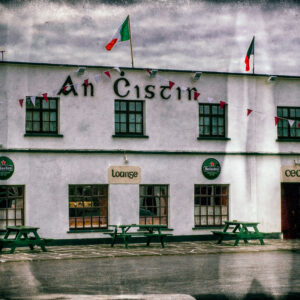
One more thing about that language school: Speaking anything but Irish inside those walls was strictly forbidden. No problem, I reckoned. At that point, my head was already filled with several weeks of kitchen-gossip Irish. I could fake it.
On the first day of classes I was directed to see the school’s secretary. Since I was there on a government grant, lots of paperwork needed to be filled out. The secretary was sitting in her office behind a formidable desk. She wore a button on her bawneen sweater that said: Labhair Béarla ‘am agus brisfidh mé do phus (“Speak English to me and I’ll break your mouth”). She inserted an official-looking form into her typewriter and began firing questions at me. “What is your name? Where were you born? When did you do your Leaving Cert? What! You’re a Poncánach? (Connemara dialect for ‘Yank’). What are you doing here?” All of this was conducted in Irish, so my translation—not to mention my memory—might be a bit off. In any case, I stumbled through my responses, especially to that last question. I don’t know about you, but there isn’t a day I wake up and don’t ask myself, “What am I doing here?”
The secretary typed up all my answers but made mistakes. She wasn’t a very good typist. Several times she had to yank the form from the typewriter platen, toss it in the rubbish bin next to her desk, and start all over. Several times I had to repeat my answers. No doubt it was good practice for my Irish if not for my patience. By the time the secretary was on her fourth go at the form, my attention began to wander.
The rubbish bin caught my eye. It was stuffed full of discarded paper, each sheet brimming with forsaken albeit misspelled Irish words—the very words I was trying so desperately to bring to life on my own tongue. There they were, lying in the hushed heaps of an administrative wastebasket. It was like catching a glimpse into the ossuary of language, the place where words go when not being words. I could feel a sinkhole in the ground of being opening beneath my feet. Next thing—and I knew it in my bones—I would be plummeting through to that region where words fail utterly, where nothing endures but a silence darker than dark. Oh dear!
Lucky for me the secretary made yet another typing mistake. The sudden yank of paper from the typewriter platen recalled me from the brink. We started over again.
Eventually she got everything right. I became fully-enrolled in the language school, where I did okay in my classes and even picked up a certificate for my efforts. But I never did go on to pursue an academic career in Irish Studies. Other things happened. You could say that I preferred the Irish I learned around the kitchen table to that heard in a seminar room. Now almost four decades later, I have forgotten all the gossip that was making the rounds back in the day in that far-off corner of Connemara. But I still remember a cúpla focal and the white flowers on the fisherman’s field.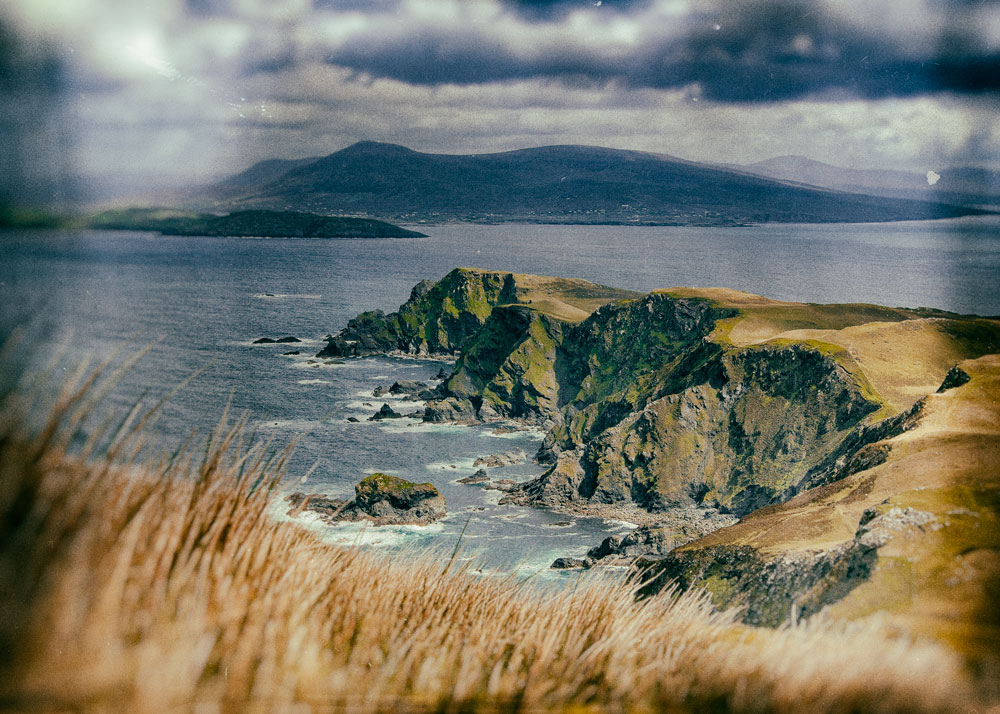
©John P. O’Grady
Originally appeared in The Mountain Eagle on January 15, 2021
